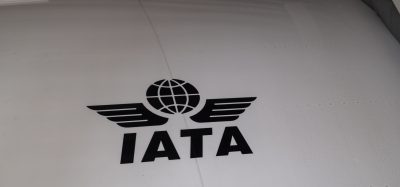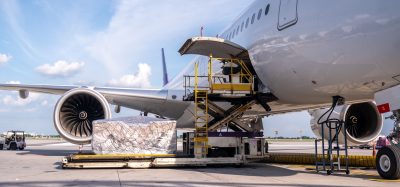Blockchain’s aviation potential explored at inaugural ICAO-UAE Summit
- Like
- Digg
- Del
- Tumblr
- VKontakte
- Buffer
- Love This
- Odnoklassniki
- Meneame
- Blogger
- Amazon
- Yahoo Mail
- Gmail
- AOL
- Newsvine
- HackerNews
- Evernote
- MySpace
- Mail.ru
- Viadeo
- Line
- Comments
- Yummly
- SMS
- Viber
- Telegram
- Subscribe
- Skype
- Facebook Messenger
- Kakao
- LiveJournal
- Yammer
- Edgar
- Fintel
- Mix
- Instapaper
- Copy Link
Posted: 4 April 2019 | International Airport Review | No comments yet
The use of blockchain technologies could be of tremendous benefit to reduce the pressure on current human resources, while at the same time sustaining increasing demand and quality levels.


Joining a high-level audience of government and air transport officials for the inaugural ICAO-UAE Blockchain Summit and Exhibition in Dubai, ICAO Council President Dr. Olumuyiwa Benard Aliu appreciated the foundational rather than disruptive characteristics of distributed ledger or ‘blockchain’ approaches, while recognising the clear areas where they could bring benefit to civil aviation customers and operators.
In his opening remarks, Aliu, noted: “With traffic growing at its exponential rate, one of the new challenges and risks is the growing number of logistical, administrative and oversight activities which will result from projected traffic growth. Blockchain technologies could be of tremendous benefit to reduce the pressure on current human resources, while at the same time sustaining increasing demand and quality levels.”
Global air traffic volumes are anticipated to double within the next fifteen years. Increases in the number of aircraft and flights translate to increased ground, passenger, ticketing, and cargo handling activities, and a parallel expansion of the associated tracking, documentation, approval, and certification requirements.
Aliu continued: “Blockchain has the potential to virtually exclude loss, distortion, or forgery of vital log data in all aviation sectors where certificates are issued and controlled. It can ensure the integrity of the ever growing certification-based system which is integral to aviation, with the potential to increase efficiency while reducing errors, and therefore enhancing both safety and security.”
The application of blockchain technology can be envisioned for almost all areas of the aviation system where complex and safety critical records are managed and updated, such as personnel licensing, aircraft maintenance, operational approvals, or cargo manifests.
Another promising application of blockchain for aviation and governments concerns the methods we use to establish traveller identity.
While offering many benefits, the integration of the technology would nonetheless present many challenges, and could cause fundamental changes in the structure of today’s aviation systems.
Aliu explained: “The aviation system today relies mostly on human agents or intermediaries to assume validation activities, and so we can foresee that the integration of blockchain processes in support of a State’s aviation safety oversight system, for example, would likely require substantial adjustments to related regulations, procedures, and responsibilities. Along with this potential there will be risks, to be sure, mainly as relying on a set of servers and smart contracts to validate documents and issue certificates poses clear cyber risks.
“It is therefore important to recall one of the outcomes from the 2017 ICAO Cyber Summit, also hosted here in the UAE, that collaboration and exchange between States and stakeholders is key to an effective and coordinated global cybersecurity posture for civil aviation. This becomes even more valid if we rely on blockchain to manage critical safety and security processes.”
The organisation of the ICAO-UAE Blockchain Summit, represents a very important step in aviation’s consideration of the technology, with the invited specialists expected to explore both its merits and its risks. It most certainly responded to the expectations of the ICAO Council and Air Navigation Commission, which have shown growing interest in blockchain potential.
Aliu concluded: “I am looking forward to some provocative ideas and insights from our key presenters as we seek to ensure a suitably robust and resilient blockchain preparedness in the civil aviation sector.
“The hosting of this summit, and creating a forum with a collaborative platform, is of high importance to the UAE and the entire international aviation industry. Staying ahead of evolving threats is a shared responsibility, involving governments, airlines, airports, and manufacturers,” explained H.E. Saif Mohammed Al Suwaidi, Director General of the UAE General Civil Aviation Authority.
Related topics
Aeronautical revenue, Big data, Blockchain, Cyber-security, Information technology (IT), Regulation and Legislation

















